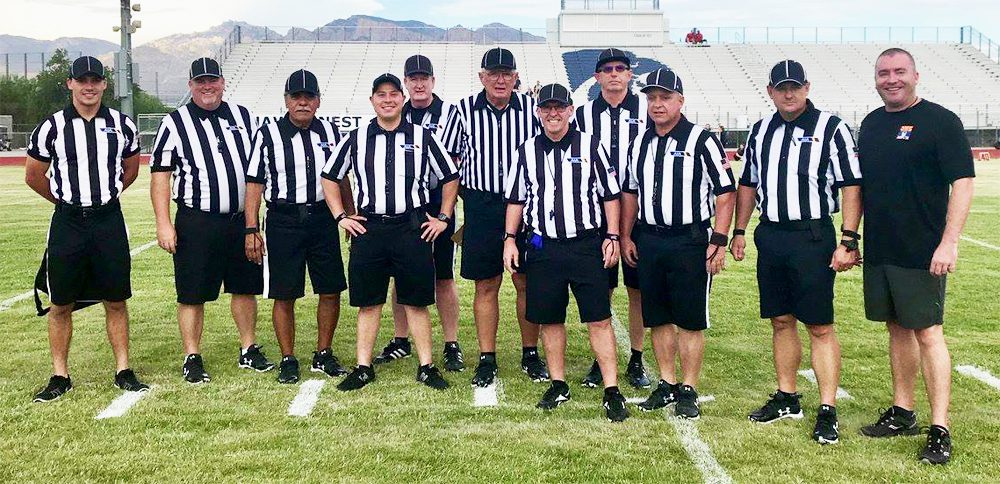
CONTACT: Azfoatucson@gmail.com azfoa.org or (520 599-1261)
Q: Tell us a little bit about your background and how long you have been a referee.
A: Have worked in insurance since 2001. Currently work as an account manager in commercial lines at a brokerage that is one of the largest in the nation. I started officiating in 2006. I started in football then followed with softball in 2009 and basketball in 2012.
Q: How have things changed in the time you have been a referee in terms of numbers of refs and the changes in the players and coaches.
A: When I started officiating our association had over 120 plus official in the then Tucson Football Officials Association. Each year that passes the room gets smaller and another year older. At the high school level the players and coaches have stayed about the same with their excitement. Only over the past five years have I experienced players fly off the handle on the drop of a dime. Also, good coaches are retiring left and right or moving into administrative roles at their schools.
Q: What are the qualifications to be a referee and is there training involved?
A: To officiate high school games per the AIA there is a criminal background check that must be passed and an age requirement of 18 years old. For youth football someone as young as 16 years old can officiate. The Tucson chapter of the AzFOA provides all the training needed to prepare new officials to officiate the games they are assigned.
Q: With flag football, it’s possible to ref every day of the week in high school except for
Sunday and Monday. Are there limits to the number of games a ref can work in a week?
A: No limits. You can work as much or as little as possible. Officials are independent contractors. Between youth, middle school and high school you can work six days a week. If you are working softball and/or basketball you can even work on Sundays when there are tournaments if you choose.
Q: What is the pay structure?
A: It varies depending on the league. You get a game fee for assigned games you work. AIA varsity contests are the highest $85 per game plus $12 mileage for in town games. Junior high and youth games pay anywhere between $50-$65 per game.
Q: What is the most difficult part of your job?
A: Keeping ego and temperament in check. Everyone around us is going berserk. We have to stay calm during the game and above the fray. The moment an official goes to the same level as a parent, coach or player we lose. Ignoring comments made directly at us during the game. We have to remember they are yelling at the uniform and not the person.
Q: How many people are on a crew?
A: Varsity contests we have a maximum of seven officials and a minimum of five
officials. Sub-varsity we have four officials.
Q: Are there opportunities to work youth games to gain more experience?
Absolutely. During the fall there are immense opportunities to work youth football
to build on the training a new official will receive. The more snaps you see and experience the better an official will be when the bright lights of Friday night come calling.
Q: What else can you say about becoming a ref and growing the game?
The extra money is nice. Giving back to the game and our community. I have friends all over the country from officiating. Places I never would have visited had it not been for officiating. Walking down the grocery store aisle and having someone say hi when I officiated one of their kids games is extremely gratifying.
Did you know every high school sport needs more officials?
Help make a difference by signing up to become an official today!
You’ll support me, my team and our entire school community!#BecomeAnOfficial https://t.co/EncmFqVnBV
— AZPreps365 (@AZPreps365) June 11, 2024












